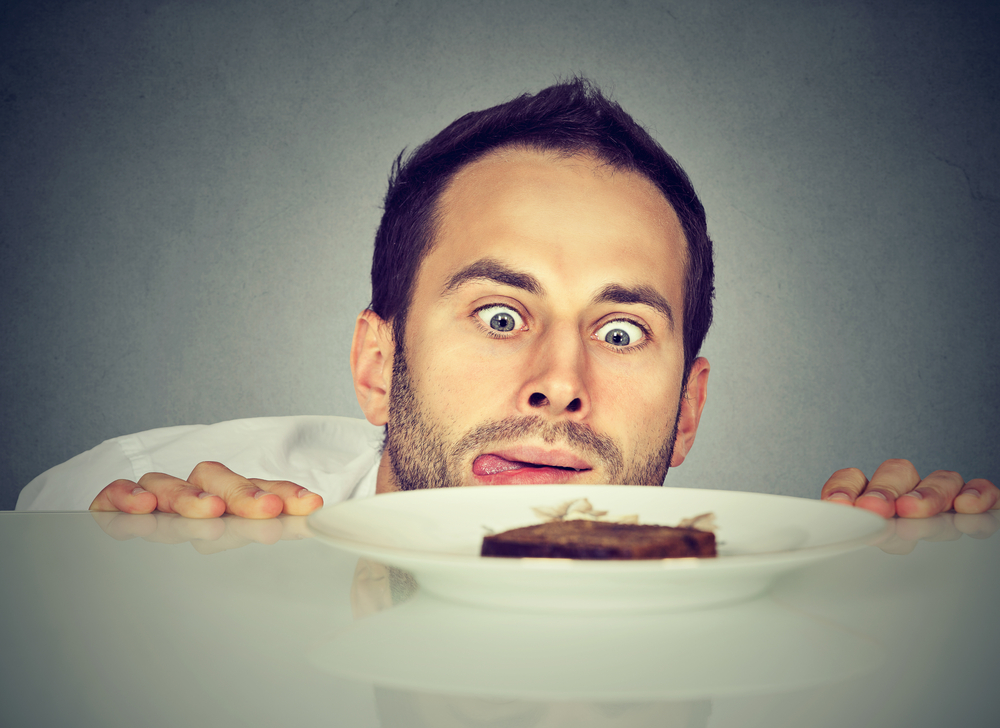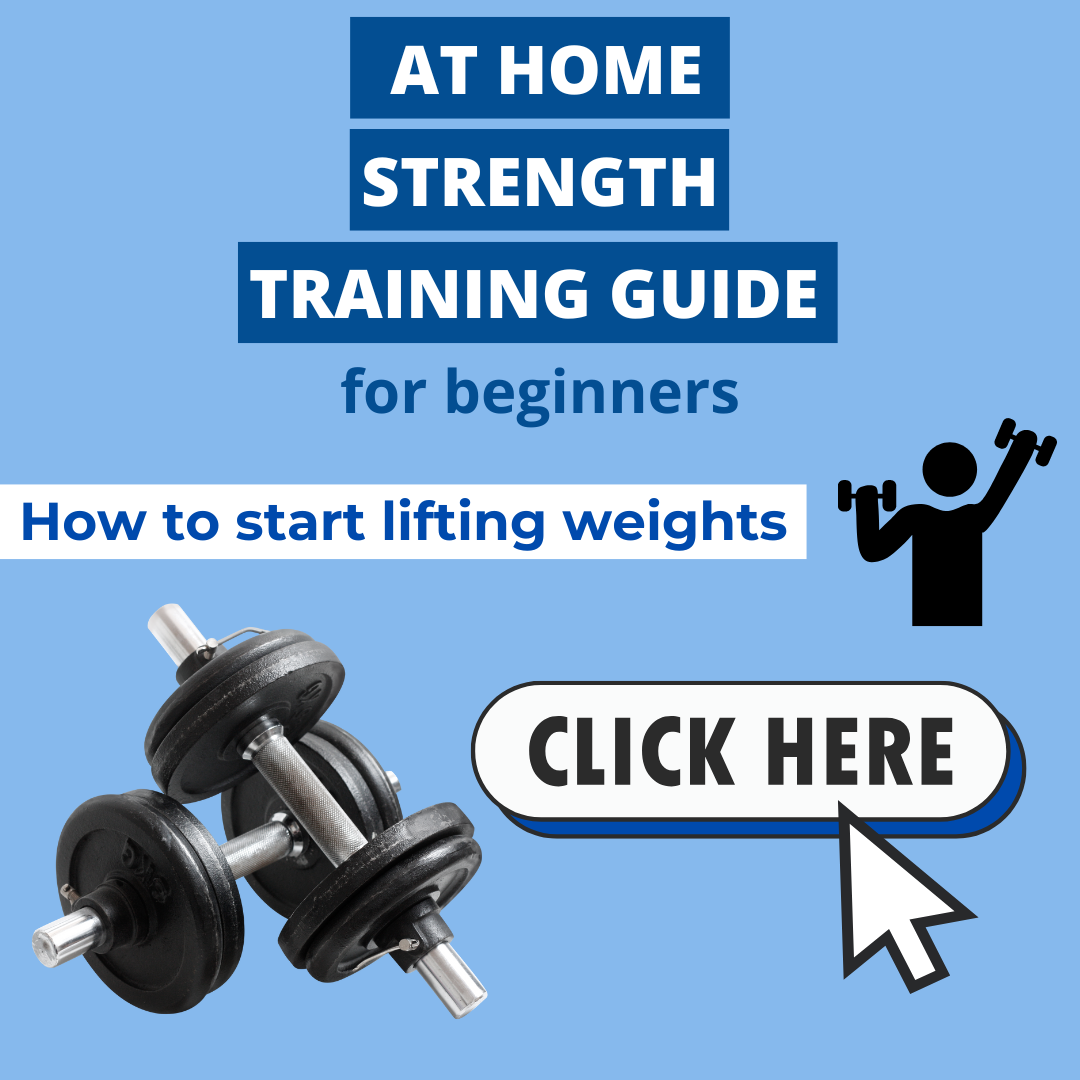Is Starvation Mode Real?

You’re not sure where you’re going wrong with weight loss.
All you know is the scale just won’t budge.
Not even a little, measly inch.
But come to think of it, you did read something online that said eating “too few calories” puts your body in starvation mode and prevents weight loss.
So, maybe that’s the issue?
It would make sense, considering you’ve tried anything and everything.
Hold up, hold up, hold up.
Put it in reverse Terry!
^^^ Just type the line right above this one into YouTube and click on the first video that comes up for a good laugh.
But in all seriousness, what you need to understand about starvation mode is this:
It’s no more real than the Tooth Fairy or Easter Bunny (even though the little kids in my parents’ neighborhood wouldn’t have believed you back when I dressed up as one when I was in high school 😂)
But yeah, starvation mode is 100% MYTH.
In this post, we’ll be talking about where the starvation mode myth comes from and why starvation mode just doesn’t make any sense whatsoever.
Then, we’ll wrap things up with where you’re going wrong with weight loss and what you can do to actually see the results you want.
What is starvation mode?
If you consume fewer calories than your body burns (aka be in a calorie deficit), weight loss is as much a guarantee as death or taxes.
But as the theory goes, starvation mode occurs from eating “too few calories,” at which point your body shuts down and prevents you from losing weight (or maybe even causes you to gain weight).
So, let’s break this down:
It’s scientifically proven that a negative energy balance—aka being in a calorie deficit and consuming fewer calories than you burn—is how you lose weight.
And yet, somehow, starvation mode overrides literal science and causes your body to hold onto fat instead of losing it?
Mmmmm.
The math just isn’t mathing with starvation mode 🤔
More on why starvation mode is a myth…
Think of starvation mode like this:
Let’s say your cell phone is on low battery but you decide to keep using it.
Would you expect your phone to stay on the same battery percentage without plugging it into the charger?
You wouldn’t.
If you use your phone, it loses battery.
And if you eat fewer calories than you burn, you’ll lose weight.
Your body doesn’t somehow rebel against you and prevent that.
Your diet could be made up entirely of candy canes, pork chops, tofu, or Twizzlers.
^^^ Although I don’t recommend that, it’s just to illustrate the point that a calorie deficit trumps all when it comes to weight loss.
Real-world examples of the starvation mode myth
Unfortunately, there are too many real-life examples we can point to about the starvation mode myth.
All of the scenarios below involve people who consume an insanely low amount of calories for an extended period of time.
But their body didn’t trigger “starvation mode.”
Rather, they consistently lose weight.
A ton of weight actually, and that’s to be expected.
Just Imagine having a face-to-face conversation with them.
How would that even go?
You: Yeah, I put my body in starvation mode because I’m not eating enough to lose weight.
Literally starving people: You’re kidding me, right?
- Hungry people around the world: Think about those who are legitimately starving. For example, children from impoverished countries. Would you tell them to just hold on until starvation mode kicks in to help them store fat?
- Prisoners of war: Have you ever seen a prisoner of war, who is stuck and captured, fed absurdly low amounts of food, and subjected to harsher conditions than either you or I can imagine, not be able to lose weight? Or put on fat?
- People with anorexia: Do their bodies stage a mutiny preventing them from losing weight despite barely eating anything?
If you’re still buying into the starvation mode myth, I would ask you to do one simple thing for me.
Re-read the list of real-world examples I just gave then get real with yourself and ask yourself the following question:
Why is MY situation an exception?
*** Hint: It’s not *
If I’m not in starvation mode, why can’t I lose weight?
I mentioned this earlier but if you’re not losing weight, know that it’s not from eating too few calories and putting your body in starvation mode.
The scale hasn’t moved because, well….
You’re not ACTUALLY in a calorie deficit.
And you’re probably consuming more calories than you realize.
What? That’s impossible!
Not really.
Thinking you’re in a calorie deficit and actually being in one are two separate things.
The reality is if you were truly in a calorie deficit then:
- Your weight would be going down
And/or…
- Your measurements would be going down
Those two are the most obvious signs you’re actually in a calorie deficit.
So if neither of those are happening, then you’re not truly in one.
Here are some questions to consider about what might be preventing you from being in a deficit:
- Am I consistent with tracking my calorie intake?: For example, you can’t be super on point during the week, then crumble like a cookie once the weekend rolls around and expect super fantastic results. Keep in mind all the extra nibbles, bites, licks, and snacks you eat throughout the day count too. If it goes in your mouth, you need to be accounting for it.
- What does my workout routine consist of?: Cardio shouldn’t be the only thing you do. You also should be strength training 3-4 times per week.
- Am I getting enough daily movement throughout the day?: You burn more calories through N.EA.T. (Non-exercise activity thermogenesis) than you do your actual workouts. This is movement you get outside of working out and includes things like walking, doing yard work, taking the stairs at work, etc.
Those are just a few questions to help you peel back the onion and get to the root of what’s holding you back from being in a calories deficit.
What can I do for sustainable weight loss?
Sustainable fat loss doesn’t have to involve:
- Purging your fridge and throwing anything with carbs away
- Trying that fitness influencer’s new workout “hack” that apparently no one else has thought of
- Some new tea or juice cleanse to “kickstart” your metabolism
If you follow the 5 simple principles I’ve laid about below (on a consistent basis) permanent fat loss is only a matter of time.
1. Make your nutrition a top priority
The best workout in the world can’t undo a poor diet (nutrition is the main driver of fat loss).
Here are two steps to get yours in order:
- Start counting your calories to ensure you’re hitting that target every day so you can lose weight.
THE ULTIMATE WEIGHT LOSS GROCERY LIST
2. Consume enough protein
Protein is essential for weight loss for the following reasons:
- Foods high in protein are extremely filling, and when you’re full and satisfied, it can make staying in a calorie deficit a helluva lot easier
- You boost your metabolism just by eating protein due to the thermic effect of food (your body burns calories through the digestion process)
- It’s the one macronutrient directly responsible for building/preserving muscle, and the more muscle you have, the more fat you lose
Aim for 0.7g-1g per pound of your goal body weight in protein daily.
3. Strength train 3-4 times a week
If you want a leaner, fitter-looking, more defined physique with some muscle, strength training is non-negotiable.
And know this:
Random HIIT workouts you saved from Instagram, Orange Theory classes, or fitness boot camps don’t count.
When I say strength training, I’m talking about getting on a dedicated program to follow for the next 4-8 weeks (or you can create your own workouts by clicking on the link below):
HOW TO CREATE A STRENGTH TRAINING PROGRAM FROM SCRATCH
It also doesn’t matter how much you sweat, how out of breath you are, or how sore you are the next day.
None of those are an indication of a good workout.
But here’s how to tell if your workouts are effective.
4. Get up and move more
Daily movement is key to fat loss AND your health.
Fat loss-wise, you already know about N.E.A.T. (If you skipped that part, just go up a few sections).
In terms of your health, research shows getting between 7,000-10,000 steps daily lowers your all-cause mortality (risk of dying from virtually anything) by 50-70%.
Walking more will improve how you feel both physically and mentally.
5. Go to bed earlier and practice stress management
When you’re stressed or don’t get enough sleep, your body produces more cortisol, which is a hormone that makes you hungrier.
And while being a little hungrier on a calorie deficit is 100% normal, you don’t want to compound things.
Instead of mindlessly scrolling through social media at the end of the day, or promising yourself “just one more episode of Netflix,” commit to an earlier bedtime.
As for the stress management side of things, here are a few things you can:
- Meditate
- Journal
- Take a walk out in nature
- Try a new creative outlet (like art, music, or writing)
- Find ways to get connected, whether that be in your community, with family, friends, pets, etc.
Wrapping up the starvation mode myth
Now you know that “eating too few calories”—aka starvation mode—is just a myth.
Just think…
Would you be able to look those who are legitimately starving, prisoners of war, or people with an eating disorder like anorexia in the eye and tell them with a straight face you can’t lose weight because you’re eating too little?
If you haven’t been losing weight, that just means you’re not truly in a calorie deficit.
But the good news is you now have a blueprint to refer back to about how to achieve sustainable fat loss:
- Make nutrition the number one priority
- Consume between 0.7g-1.0g of your goal body weight in protein every single day
- Get on a strength training program and lift weights 3-4 times per week
- Aim for between 7,500-10,000 steps every single day
- Get more sleep and manage stress
Starvation mode FAQs
How do you know if your body is in starvation mode?
You know that it’s not because starvation mode isn’t a real thing.
But it’s a lot easier to blame “starvation mode” for your lack of weight loss instead of looking internally at yourself and saying,” Hey, maybe it’s something I’m doing wrong.”
If starvation mode were truly a thing, how would you explain that to those in third-world countries who are legitimately starving, prisoners of war, or people with eating disorders?
You’re not losing weight because you’re eating way more than the 1,200 calories you think you are.
How do I get my body out of starvation mode?
Don’t buy into the starvation mode myth.
You’re not in starvation mode because it doesn’t exist.
It’s as real as unicorns or mermaids.
Unless you have some type of medical issue (which, if you believe you do, please get with your doctor to see what’s going on), the reason you’re not losing weight is that you’re consuming more calories than you think you are and/or you’re not getting enough physical activity throughout the day outside of your actual workouts.
There are two easy fixes for this:
1.) Start counting calories to ensure you’re eating the amount of food you should be for weight loss.
2.) Simply make it a point to start walking more throughout the day.

What's up?
I’m Chad, I’m happy you’re here! I’m a certified personal trainer and my goal is to help you form practical, sustainable habits that lead to lifelong fitness results. If you want to lose fat, build muscle, and live a healthier, happier life then you’re right where you need to be. 💪🏾
Free resources
⬇⬇⬇










0 Comments